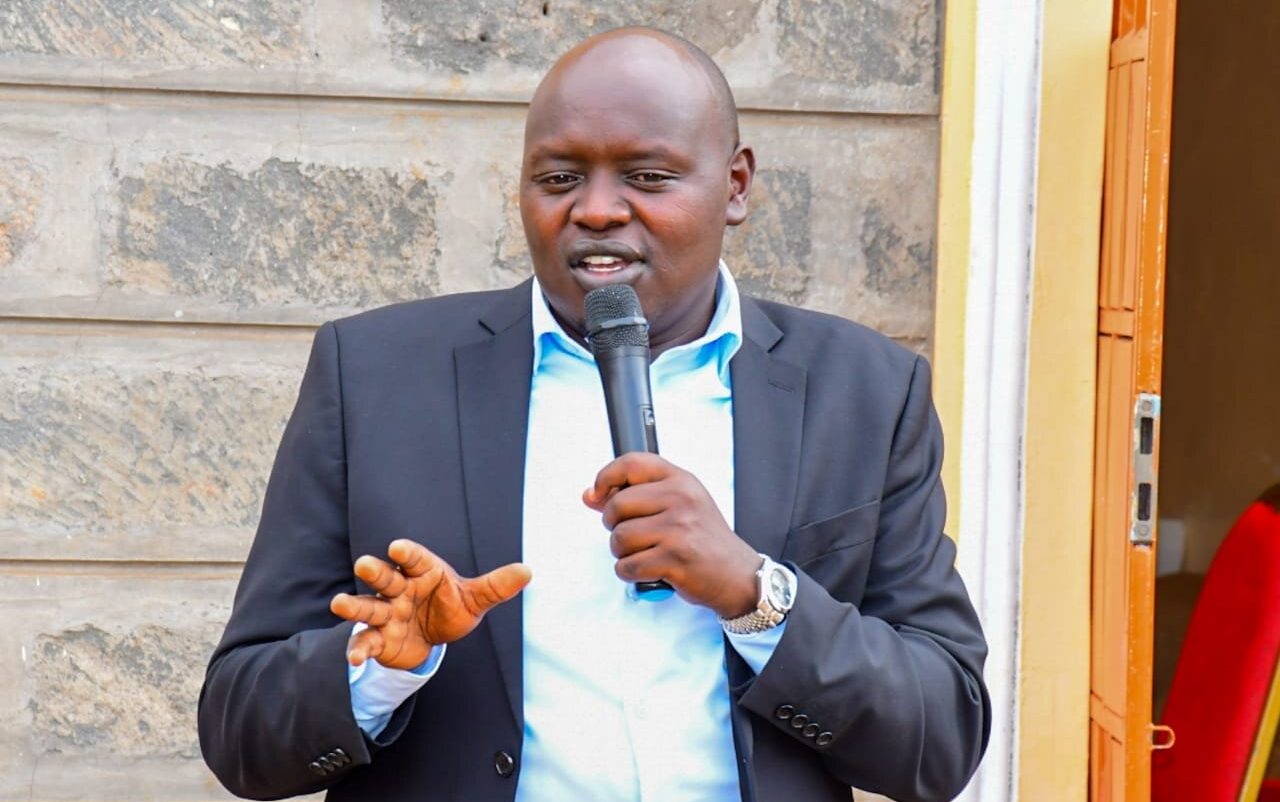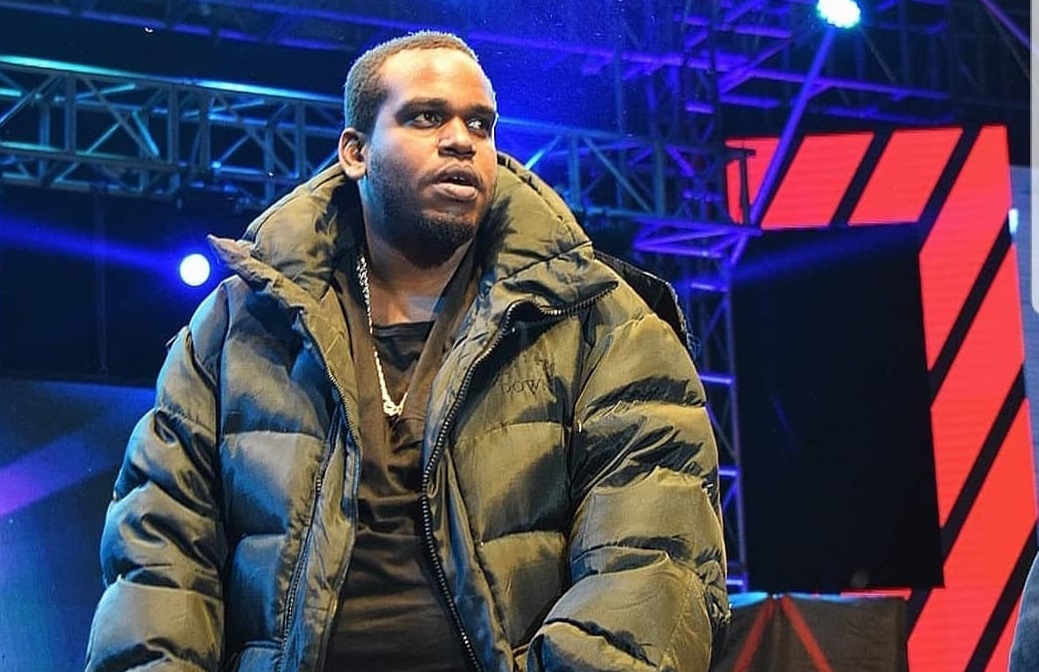Voice is defined as the sound that air makes when it is forced out of your lungs and passes over the vocal cords. Vocal cords are the two folds of tissue inside the larynx (voice box). The vibration of those cords is what produces speech, according to the American-based medicine company, John Hopkins. A voice disorder occurs when the vocal cord vibration is interfered with.
And while voice is indispensable for everyone, it is valued with more intensity by performers who use it to express their abilities such as singers, poets, spoken word artistes, voice-over artistes, radio and TV presenters and comedians, among others. Mejja is just one of the many who have injured their voices.
Kenyan artiste Major Nameye Khadija aka Mejja caught a cold around August of last year that made his voice unsurprisingly hoarse. This situation did not cause him much distress, even though it should have, because months later, it completely altered the life of the famed Genge star.
“I had the flu at the same time I travelled for my tour to Australia where it was so cold. While there, I could not access appropriate treatment because, unlike Kenya where you can buy medication off the counter, in Australia there is an elaborate procedure for accessing treatment,” Mejja tells Spice.
Self-medication
Confronted with a conundrum, the Kanairo Dating hitmaker retreated to his devices, preparing dawa — the sworn unmistakable healing concoctions among most Kenyans. Still, his voice failed to recover, mocking his efforts to self-medicate.
He candidly admits to performing with a lot of difficulty for the entirety of his tour. After his flu cleared and his voice failed to return, the Siskii singer became unnerved.
“I went to the hospital where tests revealed my vocal cords were injured by a variety of factors including elevated intake of sugary and frizzy drinks, consumption of unboiled milk, and continued strain I put on my voice at the onset of the throat irritation,” he says.
Explaining his condition Mejja intimates: “Normal vocal cords should be wet, but mine are dry and so now I have to take medication and a lot of water to supply the moisture. It’s a long-term condition, but it can be managed by improving lifestyle and adhering to treatment.”
He further intimates that he has to take a tablet five hours before singing or leaving the house to soothe his voice. “Right now, I just cannot get up and leave the house to perform; I have to take into account my medication. In addition, if it’s cold I have to keep really warm. Discontinuing sugar has also been hard because I have a sweet tooth. This condition is almost like diabetes where you have to adhere to the prescribed medication, failure to which my voice would disappear,” he says.
Determined to triumph over these hurdles Mejja is actively adhering to therapy and taking care of his voice with an unrestrained resolve. “Kuimba mimi naimba; ni vitu zingine zitachange ndio niaccomodate hii situation (I can still sing, but I have only to make a few changes to accommodate my current situation),” he says.
He advises people to seek treatment from qualified medical practitioners whenever they sense a problem with their voice. He also discourages them from self-medication, especially if the voice is their source of income. “Drink a lot of water and see a doctor,” he advises.
Vocal folds damage
Ian Mbugua is a renowned Kenyan thespian and music coach. He says if a person continues to sing or shout when their voice is sore, they stand the risk of damaging their vocal folds permanently.
“Laryngitis (swelling of vocal cords) and throat cancer are candidates that can damage your voice permanently,” he says, adding that failure of artistes to warm their voices, hydrate, and refrain from shouting bears a negative impact on their voices. His advice is to rest adequately and consult a doctor at the onset of soreness.
Says Ian: “Any artiste who uses the voice as their instrument should take very good care of it. Without it, the artiste is handicapped. Just take care of your voice,” he cautions.
Just last month, comedian Eddie Butita lost his voice after experiencing a fever and a painful throat. “Due to the potential of losing one’s voice, artistes have started to include this risk in their contracts, so that there is some kind of compensation or something. There is a time I could not perform and the client thought I was lying; I had to go and demonstrate that I was indeed unwell,” he says.
He adds: “In some countries around the world, people insure their voices, because it’s their livelihood. The same is not happening here. I would love to see insurance companies here offer such services.”
Eddie’s normal routine before performing is to avoid exposure to cold weather, consumption of cold drinks, shouting, and too much talking. He adds that anybody who uses their voice as an income tool can best preserve their voice by avoiding excessive consumption of alcohol, and sugary foods and in place, they should take warm water and beverages.
Globally many famous artistes have injured their voices in one form or the other. English singer Adele Laurie Blue Adkins has had a couple of instances when her voice was injured at one point she had to undergo a vocal cord microsurgery. Grammy award-winning American artiste Gerald Maxwell Rivera’s career almost came to a grinding halt in 2009 when he underwent a throat surgery that threw him off balance in a big way. Others are Céline Dion and Sam Smith.
National Institutes of Health documents that voice disorders can be caused by multiple factors including tumours on vocal folds, inflammation by gastroesophageal reflux (acid reflux) nerve problems, hormones, psychological trauma, and cancer of the larynx.
Unprecedented injuries
A hoarse or raspy voice, inability to hit some high notes when singing, repeated clearing of throat, raw or strained feeling, and unusually deep sounding voice are some of the signs that would point to a problem with a person’s voice.
In 2019, gospel artiste Jimmy Gait almost lost his voice when he was misdiagnosed with a damaged throat and was advised by Kenyan doctors to undergo a surgery. He was hospitalised in India for treatment, where he went through several tests to diagnose his problem. The doctors found an increased acid production in the stomach that had caused an infection.
Speaking on his YouTube channel, Jimmy said after seeking the services of another medic from India, he was told that the proposed operation would have led to him losing his singing voice.
“My voice has been saved, my career and ministry have been saved, and I give God all the glory. Thank you for standing with me,” he said.
Multilingual voice-over artiste Cynthia Kimola understands the importance of preserving her voice with resounding clarity. “Through my voice, I can earn a living, communicate brand information and use it to uplift and inspire people because it is a gift from God,” says Cynthia.
Her voice has been used in various Kenyan, regional, and international TV and radio ads, eLearning projects, features, documentaries, explainer videos, podcast intros, phone prompts, animations, and audiobooks.
Go slow on it
“If my voice is not up to par, I usually avoid recording because I do not want to strain it further and I also want it to sound good for the client,” she tells Spice, adding that her care routine includes drinking warm water to warm up the vocal cords and drinking a concoction of ginger, black pepper, turmeric, and lemon to help with reducing inflammation in her cords.
While observing the evolving requirements of voice-over artistes, Cynthia advises that people should master different languages including indigenous dialects to make them attractive to clients.
“The opportunities in the voice industry are endless. Just ensure that when entering into work contracts, you protect yourself by signing contracts that expressly state what your voice will be used for and make sure you are compensated for that,” she says.
Annually, the World Voice Day is celebrated globally on April 16, with a goal to increase public awareness regarding the importance of voice in expression and communication in addition to highlighting the significance of vocal health problems. This year’s theme is “Your Voice Matters”.









